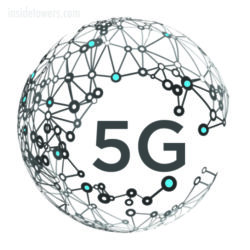The U.S. needs a comprehensive 5G security strategy and the so-called “Rip and Replace” bill recently sent to the President goes a long way towards ensuring smaller carriers can secure their networks, Competitive Carriers Association Steve Berry told lawmakers on Wednesday. Berry spoke, along with representatives from Nokia, Ericsson and Intel, during a Senate Energy and Commerce Committee hearing.
The Senate last week passed H.R. 4998, the Secure and Trusted Communications Networks Act of 2019.
The bill prohibits the FCC’s Universal Service recipient carriers from being subsidized to acquire or maintain equipment from untrusted suppliers like Huawei and ZTE.
It creates a program to reimburse telecoms with fewer than two million customers. The measure also establishes an information sharing program for telecoms, especially small and rural operators, to obtain information regarding potential security risks and vulnerabilities to their networks.
Berry told lawmakers the bill gives carriers clear guidance from the federal government concerning network security. Most CCA members do not have Huawei or ZTE gear in their networks, he clarified. But the $1 billion fund would help those who do, as carriers must essentially build a new network first, and then rip out the untrusted gear. And they must do so while they maintain service, he explained.
“These carriers are essentially attempting to rebuild the airplane in mid-flight,” said Berry. CCA members are talking with vendors to discuss price estimates and exactly what equipment needs to be replaced. Also unknown at this point is whether the $1 billion set aside by Congress for reimbursements will be enough and how long the replacements could take, according to Berry.
“The number one issue now is we have a goal, no covered [meaning untrusted] equipment in a network,” said Berry. “Now, [how] do we take out everything from the antenna to the core and go back to 2G and 3G technology,” and also maintain voice capability, he asked rhetorically. “It’s like building a separate network, while you operate a network, while you transition,” he explained.
Nokia and Ericsson representatives said they are ready to help the rip and replace effort. While 5G will have many benefits, it also poses more security challenges than 4G and prior technologies. That’s because of the “increased network surface,” as more computing will be done in the cloud or at the edge of the network, said Jason Boswell, Head of Security, Network Product Solutions, Ericsson.
Committee Chairman Roger Wicker (R-MS) struck a somber note. “We are seeing more reports that Huawei can covertly access mobile phone networks around the world. At the same time, some of our close allies are granting Huawei access to their communications systems.” He called these “troubling developments.”
By Leslie Stimson, Inside Towers Washington Bureau Chief





Reader Interactions